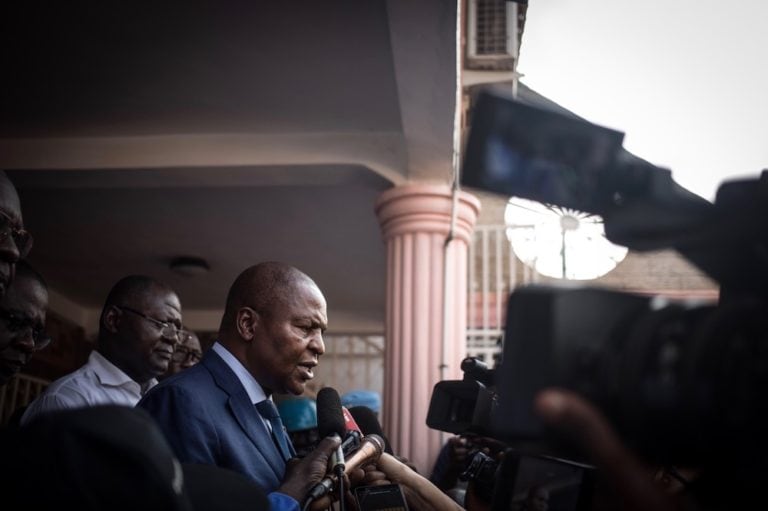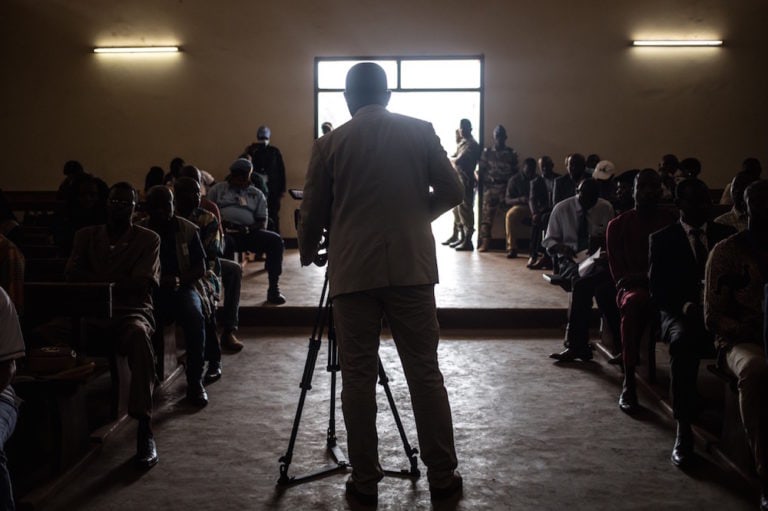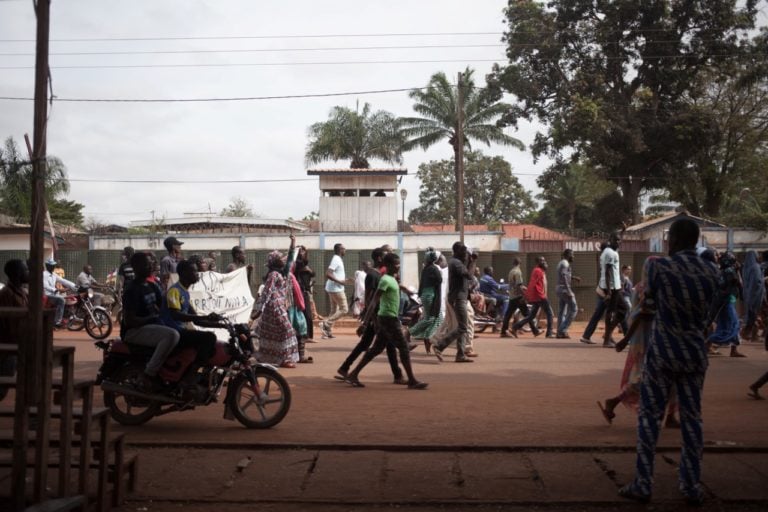**Updates IFEX alert of 8 August 2000** (CPJ/IFEX) – In a 15 August 2000 letter to President Ange Felix Patasse, on the occasion of the 40th anniversary of the nation’s proclamation of independence, CPJ expressed its grave concern about the recent deterioration of press freedom standards in the Central African Republic. Central African Republic governments […]
**Updates IFEX alert of 8 August 2000**
(CPJ/IFEX) – In a 15 August 2000 letter to President Ange Felix Patasse, on the occasion of the 40th anniversary of the nation’s proclamation of independence, CPJ expressed its grave concern about the recent deterioration of press freedom standards in the Central African Republic.
Central African Republic governments have in the past been relatively tolerant of media criticism, so CPJ is particularly dismayed at the recent trend of prosecuting journalists who report on sensitive matters relating to the presidency.
On 4 August, for example, Maka Gbossokotto, publisher of the private daily “Le Citoyen”, was summoned to police headquarters in Bangui, where he was interrogated for several hours and then arrested. According to CPJ sources, Gbossokotto was detained for “insult” and “defamation” in connection with an article that he had written for the 24 July edition of “Le Citoyen”.
Gbossokotto’s article commented on a recent letter sent by Prosper N’Douba, the presidential advisor in charge of communications, to several private companies, enjoining each of them to purchase “at least” a dozen copies of the president’s “new official effigies” at US$225 per pack of twelve. Headlined “Racket of Private Companies Masterminded by Prosper N’Douba,” Gbossokotto’s article sharply questioned the legality of N’Douba’s fundraising scheme and raised doubts about the ultimate beneficiary of the moneys that he collected.
Gbossokotto was held until 10 August, when he was conditionally released pending N’Douba’s lawsuit against him for defamation, which is currently awaiting a hearing at the Bangui Court of First Instance.
Prior to this, on 5 March, officers from the Police Criminal Division, who claimed to be acting at the behest of the state prosecutor, arrested Cardoso de Meillot, publisher of the private daily “Le Democrate”, at the newspaper’s offices in the capital, Bangui. The journalist was immediately charged with “insulting the head of state” and “incitement to hatred” in connection with an article in which he had claimed that the president was not “a man of his words.”
In the same article, Cardoso vigorously condemned official corruption, which he described as rampant and pervasive at all levels of government. He also urged international donors and money-lending institutions not to commit a “crime against the people of the Central African Republic” by granting loans to the government, which, he said, would amount to “financially aiding” the president.
Cardoso was repeatedly interrogated by both police and secret service agents during his three-week illegal detention. He was conditionally released around 27 March. On 17 May, a Bangui court found him guilty of “offense to the head of state” and gave him a suspended six-month prison sentence, coupled with a fine of US$145 (see IFEX alerts of 22 and 15 July 2000).
On 7 March, the state prosecutor’s office issued an arrest warrant for Raphael Kopessoua, publisher of the private Bangui weekly “Vouma la Mouche”. The journalist was wanted in connection with an article alleging that a local bank manager, Jonas Yologaza, was involved in the “laundering of mafia money” on the president’s behalf. CPJ sources say that Kopessoua went underground after the warrant was issued. He was charged with defamation of the head of state and, on 17 May, sentenced in absentia to a suspended three-year prison term and a fine of US$190 (see IFEX alerts of 22 and 15 July).
CPJ believes that the president’s public statements have largely contributed to the ongoing deterioration of press freedom standards in the country. According to CPJ’s research, on 28 December 28 1999, the president warned the Central African private press that its “leisure time” was now over. He also announced that beginning 1 January 2000 an unspecified set of measures would be adopted “against media organizations and reporters who incite rebellion, tribal hatred, and war.”
Recommended Action
Send appeals to the president:
– condemning the president’s statements about the press and urging him to retract them publicly
– calling on him to ensure that the charges and prison sentences against journalists Gbossokotto, de Meillot, and Kopessoua are immediately and unconditionally cancelled
– urging him to reaffirm his commitment to Article 13 of the country’s Constitution of December 1994, which states that “the freedom to inform, express and circulate opinions and ideas through writing, sounds and pictures (…) is guaranteed; freedom of the press is recognised and protected by law”
Appeals To
APPEALS TO:
His Excellency Ange Felix Patasse
President of the Central African Republic
Palais de la Presidence
Bangui, Central African Republic
Fax: +236 616 779
Please copy appeals to the source if possible.


